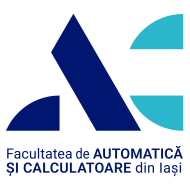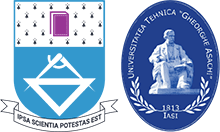The Master’s degree program in Embedded Control Systems (ECS) is developed in collaboration with Continental Automotive Romania – Iași, and is primarily aimed at graduates of bachelor’s studies in the electrical field who wish to specialize in embedded systems, particularly in control systems for the automotive sector, through:
- modeling, simulating, identifying, and analyzing processes in the automotive field using advanced methods;
- designing, implementing, and testing embedded systems for automation and applied computer science applications;
- developing software applications and implementing control algorithms for embedded systems using project management principles, programming environments, and advanced technologies.
Why Embedded Control Systems?
The refinement of preparation during undergraduate studies can bring, in addition to personal satisfaction, increased chances of employment and the development of a successful career in a field that is highly valued now and in the future.
In this regard, the Department of Automatic Control and Applied Informatics offers a master’s program in Embedded Control Systems, developed in partnership with Continental Automotive Romania.
Will I like it? Yes, if…
- I want to acquire new knowledge that will complement what I learned during my undergraduate studies in a related field.
- I intend to be part of research and development groups in a cutting-edge field of technology.
- I am motivated and interested in building a professional career in a relevant field with promising prospects.
- I want to collaborate with specialized departments within a multinational company for the preparation of my dissertation, which will enhance my chances of employment in the field.
- I work in the automotive field or in embedded systems, and I want to continue my professional training.
Strong points
- The program is carried out in close collaboration with Continental Automotive Romania, Iași branch.
- The classification of the faculty among the top three higher education institutions in the field of “Systems Engineering, Computers, and Information Technology.”
- Collaborations with numerous prestigious European universities, which provide interested students with the opportunity to undertake internships abroad.
- Teaching and research spaces equipped with computing technology and high-performance equipment.
- It ensures competencies in areas such as programming engineering, embedded systems, automotive systems engineering, software systems testing, and project management.
Job opportunities
- Internships at companies in the IT field and at European universities (with ERASMUS financial support) for the preparation of the dissertation.
- Job opportunities offered by major companies in the IT field, such as Danieli Engineering, Continental, Delphi, Electra, Cenit.
- Job opportunities in research institutes in the country or abroad.
- Continuing university studies through doctoral programs within the faculty or at universities in the country and abroad.
Studied discipline
Year I
Year II
Curriculum plans 2023-2024 – ongoing series
Teaching series
| Series 2023-2025 | Series 2022-2024 |
Acquired skills (listed in the diploma supplement)
Professional skills
- Working with advanced concepts in mathematics, systems theory and automatic control, mechanical, electrical and electronic engineering, computer science, and information and communication technology.
- The use of advanced modeling, simulation, identification, and analysis methods for processes in the automotive field.
- Design, implementation, and testing of embedded systems for automated driving applications and applied computer science.
- Development of applications and implementation of control algorithms for embedded systems using project management principles, programming environments, and advanced technologies.
Transversal skills
- The application, in the context of complying with laws of intellectual property rights, of the principles, norms, and values of the professional code of ethics within one’s own strategy of rigorous, efficient, and responsible work.
- Assuming leadership roles/functions in a multidisciplinary team, and applying techniques for effective communication and teamwork within the group.
- Creating opportunities for continuous training and effectively utilizing resources and learning techniques for personal development.
Possible occupations (COR code – Classification of Occupations in Romania)
- Automation Engineer (215202)
- Research Assistant in Automation (215240)
- Researcher in Automation (215238)
- Research Engineer in Automation (215239)
- Research Engineer in Process Equipment (214461)
- Research Engineer in Computers (215236)
- Systems and Computer Design Engineer (215214)
- Network Administrator (System Engineer) (252301)
- Database Administrator (252101)
- Software System Engineer (251205)
- IT Project Manager (251206)
- Research Engineer in Remote Control and Electronics in Transport (215233)
- Electromechanical-Automation Maintenance Specialist for Industrial Equipment (215220)


